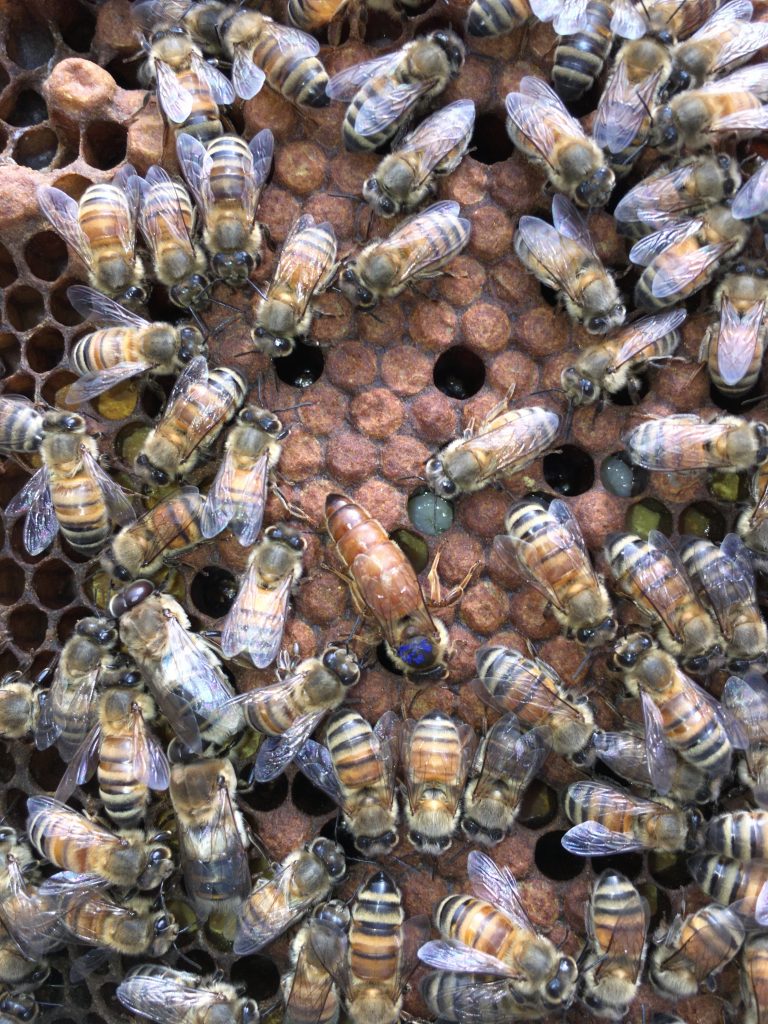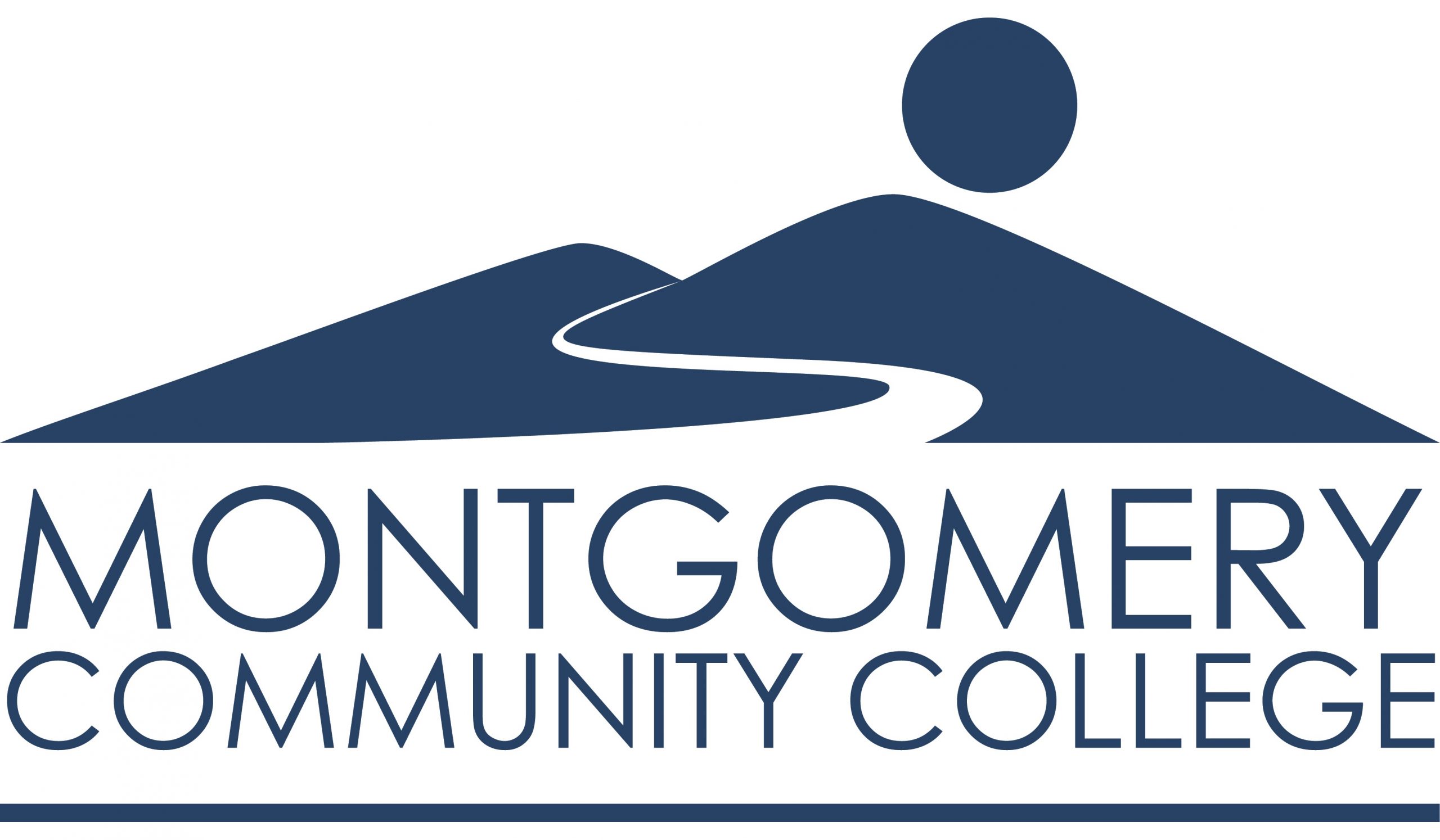MCC’s Campus Buzzing with New Apiary
Published on Monday, April 19th, 2021
“Apiary” is the technical term given to an area where beehives are kept, and MCC now has one. In the southwestern corner of campus, between the Forestry Building and its new under-construction equipment shed, MCC has welcomed two colonies of bees housed in white Langstroth hives.
Each Langstroth hive sits atop a sturdy pine stand donated by Tony and Shirley Harris, the President of the Beekeeping Association for Montgomery County and avid member of MCC’s beekeeping family. The hives feature vertically-hung frames, a bottom platform as an entrance for the bees and boxes for bees to live and breed and other areas for honey storage. Each hive also has a cover and top cap to provide weather protection.

“If I were a bee, I would love this location,” admits Jessica Hamilton, MCC’s leading beekeeper. “It is far away from people, has access to pollen and nectar and enjoys full sun.” As we observe the hives, Hamilton believes the bees have made a good adjustment. Each nucleus colony delivered to the College included a Queen, Workers (all females) and Drones (males who do little besides mate with the Queen). Each hive is buzzing with activity, and will be the hub of MCC’s beekeeping classes for the upcoming summer. “Historically we have visited other hives in Montgomery County, but this year and from here on out our students will have their own colonies to tend right here.”
As with most things at MCC, safety comes first. Large and bright signs warn of bees in the area, discouraging non-beekeepers and especially people who may be allergic to bee stings.
Beekeeping classes at MCC have run consistently since 2006, but N.C. Department of Agriculture & Consumer Services Apiary Inspector Nancy Ruppert recalls her predecessor Mr. Sheppard teaching classes on this campus even earlier. The college has a great relationship Montgomery County Beekeepers Association which meets monthly on campus; the Jano Lewis Scholarship was created through the County Beekeepers association to help provide new beekeepers with funding to purchase equipment and bees as well as a mentor to create a strong foundation.
Hamilton’s hope is that eventually MCC can become a designated “Bee Campus USA” which further illustrates the school‘s commitment to teaching sustainable agriculture practices. Bee Campuses enjoy partnerships with Master Gardeners and Cooperative Extension experts from across the state, support local small agriculture-related businesses not to mention the pollination benefits to local food producers.
Why would someone be interested in beekeeping? In addition to honey access, Hamilton sees a lot of life lessons on display in a hive. “Bees have to be one of the efficient creatures on the planet. They have a job, they do their job, and there is no wasted effort. From birth to death, each contributes meaningful effort to the success of the colony, and none complain.”
To learn more about beekeeping classes, contact Jessica Hamilton at 910-898-9674 or hamiltonj@mntgomery.edu.

